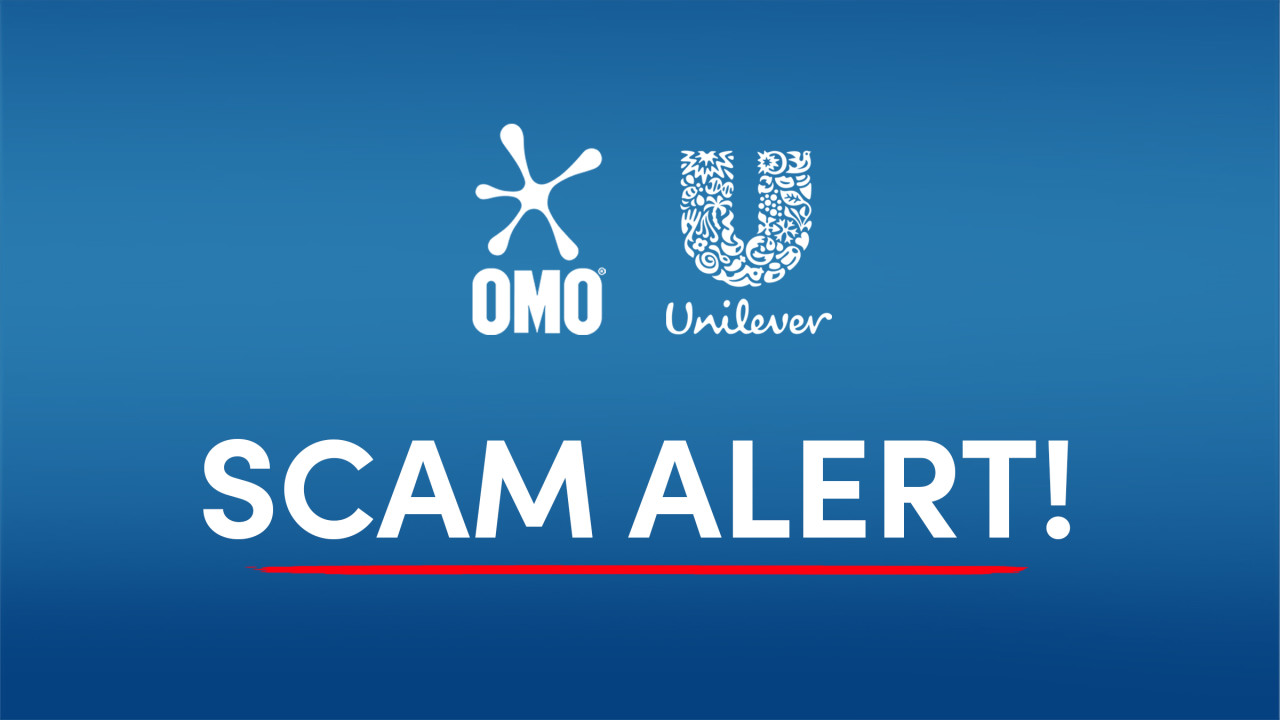There have recently been a number of OMO competition fraud sms’s and emails that have been doing the rounds whereby consumers have received an SMS or email message informing them that “you have been rewarded/won a large sum of money”.
The scam involves the sender requesting the consumers’ banking details and requesting them to deposit monies into an account in order for them to receive their winnings. We would like to inform consumers that these are fraudulent and not associated with Unilever or OMO in anyway.
Unilever/OMO - or organisations acting on our behalf – will never send you an sms or email unless you have entered a competition through formal channels, and will never ask for payment at any stage - please report any of these suspected fraud matters to the Unilever Consumer Engagement Centre on 0800204841 or email us on consumer.affairs-za@unilever.com. Alternatively, you can send us a Whatsapp on 0674297040. Once you have contacted us, kindly delete the SMS or Emailed (scam) message.
This is a long-established, sophisticated fraud used by criminal gangs. These communications are fraudulent and do NOT originate from Unilever or Unilever’s Brands. We ask consumers to be vigilant and rather report anything that seems too good to be true to the Unilever Consumer Engagement Centre (details above).
SOME INDICATIONS THAT A MESSAGE YOU HAVE RECEIVED COULD BE AN SCAM
Email or sms content that sounds too good to be true.
The promise of large sums of money for little or no effort on the victim’s part.
A request to provide money upfront as a processing/administration fee. The request usually contains a sense of urgency.
The victim does not know the person who has sent the email.
At times, the sender requests confidentiality.
An email which states that the person has won a prize/lottery
Payments requested to be made by cash send or bank transfer
Genuine companies’ letterheads are often utilised to convince persons of the authenticity of the request.
TIPS
If you receive a scam email, do not reply or click on any links;
No Unilever employee will contact you via social media platforms;
No Unilever employee will request you to share your personal details: Name, contact details, addresses, Identity number, banking details, etc.;
No Unilever employee will request you to pay a fee or make a payment;
Forward a copy of the e-mail to the Internet Service Provider from where the e-mail originated. example: if you receive the fraudulent email from a Hotmail account, please forward it to abuse@hotmail.com; the Internet Service Provider can then report this account as fraudulent and potentially close the account;
If you have fallen victim and paid over money, immediately contact the South African Police Services, register a case number with them and then please reach out to the Unilever Consumer Engagement Centre (details below) so that we can keep a record of these details.
Thank you for your understanding and please do not hesitate to revert back to us with any further queries or concerns. You can contact us at the Unilever Consumer Engagement Centre on 0800204841 or email us on consumer.affairs-za@unilever.com. Alternatively, you can send us a Whatsapp on 0674297040.


